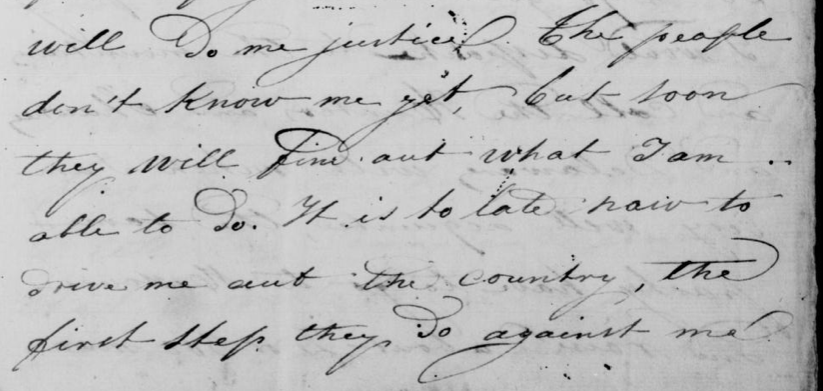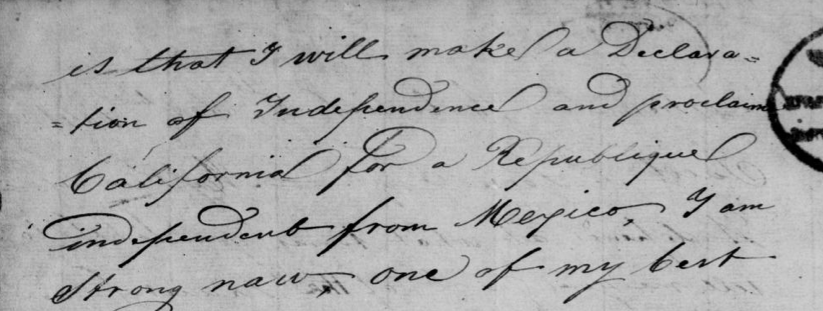To add to the accepted answer, here is some additional information perhaps indirectly related to the question.
This plaque in San Francisco, California Historical Landmark No. 819, includes the phrase "this venture caused wide speculation about British intentions".
Part of the background to this may be this letter (page 1 and page 2) that William G. Rae, the Hudson's Bay Company's Chief Trader, wrote to Juan B. Alvarado, then Governor of California, on 1st November 1841, asking him to issue an order preventing Captain John Sutter from interfering with the Company's trappers and he also asked for a license to enable the Hudson's Bay Company's employees to travel to "whatever part of California the Company's business may require". Wikipedia suggests that Sutter favoured the French taking control of California and Sutter also had ideas of declaring California a republic no doubt with himself as dictator as can be seen from the extracts shown here of a letter he wrote on the 8 November 1841 to Jacob Leese.
The extracts read as follows:
".....The people don't know me yet, but soon they will find out what I am able to do. It is to late now to drive me out the country, the first steps they do against me is that I will make a Declaration of Independence and proclaim California for a Republique independent from Mexico. I am strong now........"
(This letter is referenced in Bancroft's History here and is held in the Vallejo Family Papers Collection reference BANC MSS C-B 441 at The Bancroft Library, University of California, Berkeley.)


Of more direct relevance perhaps to the question were the reports sent to the Foreign Office during the period 1843-1846 by James Alexander Forbes, the British vice-consul to California. His reports are described and discussed in the following article but there is far too much information on British intentions regarding California in this document to attempt to summarise it. Here is just one quote:
"With California in a state of turmoil, an American takeover became more likely. Forbes stated: 'I feel myself in duty bound to use all my influence to prevent this fine country from falling into the hands of any other foreign power than that of England.'"
A British Consular Agent in California: The Reports of James A. Forbes,
1843-1846 by RUSSELL M. POSNER
The final words perhaps on this answer should be those of Sir Robert Peel, British Prime Minister, in his answer in March 1845 to a question in Parliament on the matter of Britain's interest in California:
"I beg to state, in answer to the question of my hon. Friend, in the most explicit manner, that I am not aware of the existence of any such correspondence, and that I believe the report to be as utterly without foundation as any report that was ever invented. I hope that this contradiction may prove a caution to persons out of doors how they put confidence in such stories. I have seen a great many reports as to the undermining ambition of Great Britain; but I have considered that they were propagated rather as a palliation for the conduct of others, than as having any truth in them. I can answer for it that the present Government have had no such correspondence; and as I find no trace of it in any of the offices, I believe that the late Government was equally innocent in the matter. I repeat that the report is utterly destitute of foundation."

